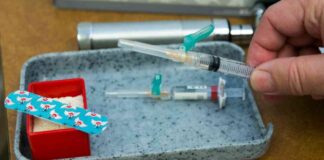Children who have cochlear implants are more vulnerable to certain types of bacterial meningitis compared to other children. Meningitis is a severe infection that affects the membranes covering the brain and spinal cord. To combat this risk, it is crucial for kids with cochlear implants to receive appropriate vaccinations both before and after the implant surgery.
It is essential for parents to ensure that their children with cochlear implants receive all the necessary vaccines according to the recommended immunization schedule. Some of the key vaccines that are particularly important for these children include:
– Haemophilus influenzae type b (Hib) vaccine for children under 5 years old
– Pneumococcal conjugate (PCV13) vaccine
– Annual influenza (flu) vaccine for children over 6 months old, administered as a shot rather than a nasal spray
– Pneumococcal polysaccharide vaccine (PPSV23) for children over 2 years old who have cochlear implants or are at risk of getting them
Ideally, these vaccines should be given at least 2 weeks before the cochlear implant surgery. However, if this timeline is not possible, it is important to administer the vaccines as soon as possible after the surgery to ensure maximum protection.
It is also important to note that children with cochlear implants do not face an increased risk of meningococcal meningitis, a specific type of meningitis. They can safely receive the meningococcal vaccine along with all other routine immunizations on schedule.
By following the recommended vaccination guidelines, parents can help protect their children with cochlear implants from serious infections and health complications. Vaccines play a crucial role in safeguarding the overall well-being of these children and ensuring they can lead healthy and fulfilling lives.
In addition to vaccinations, parents should also stay informed about any updates or changes to the immunization schedule to ensure their children receive timely and appropriate care. Regular communication with healthcare providers can help address any concerns or questions regarding vaccinations for children with cochlear implants.
Overall, prioritizing vaccination for children with cochlear implants is a proactive step towards safeguarding their health and well-being, providing them with the best possible protection against preventable diseases.


















